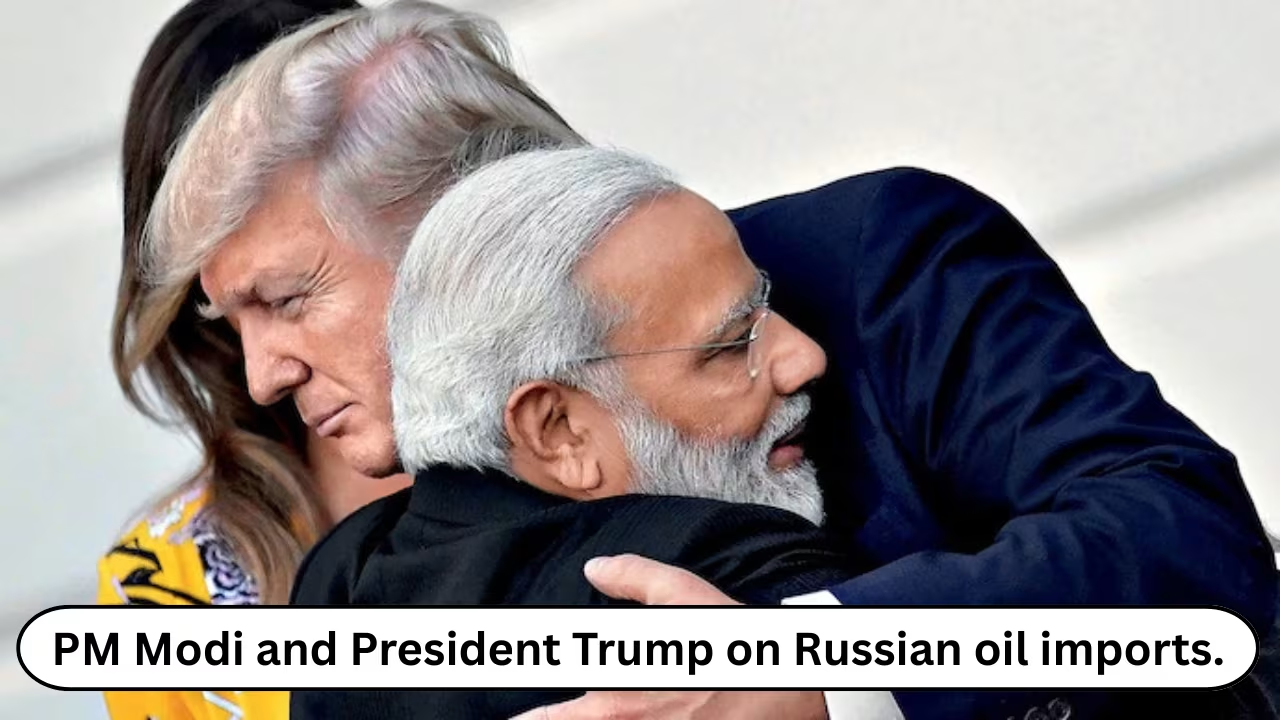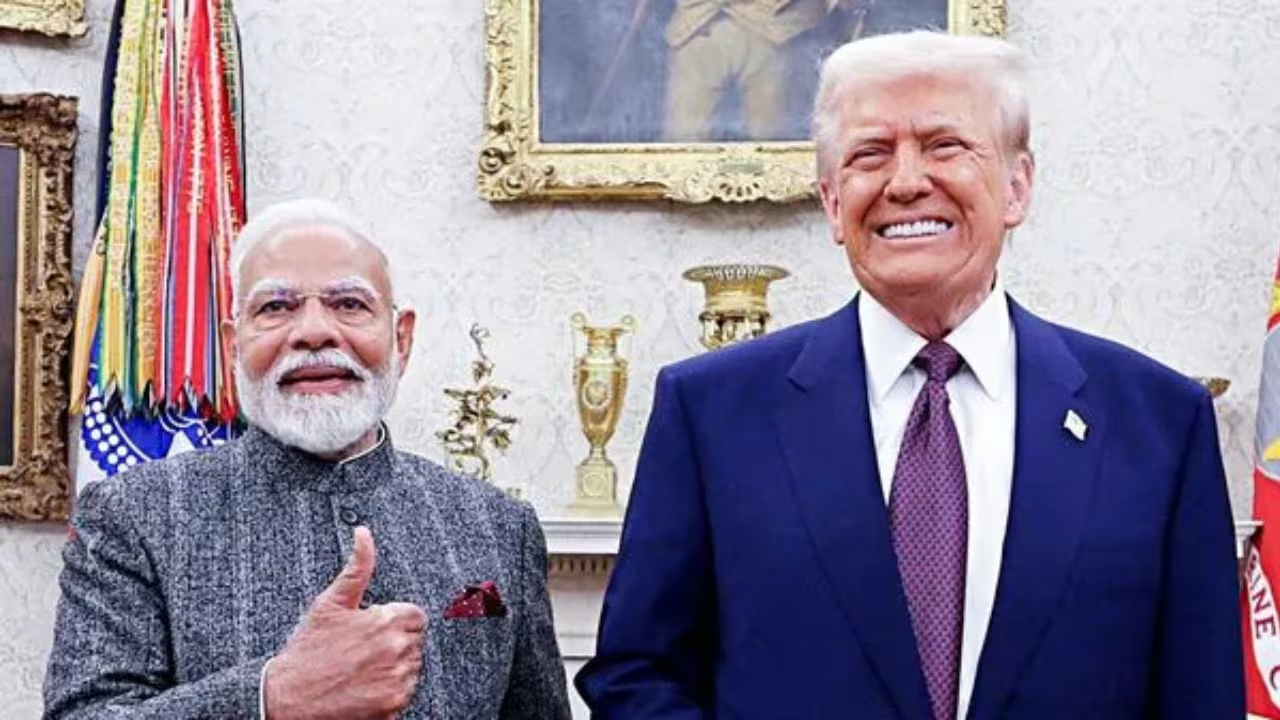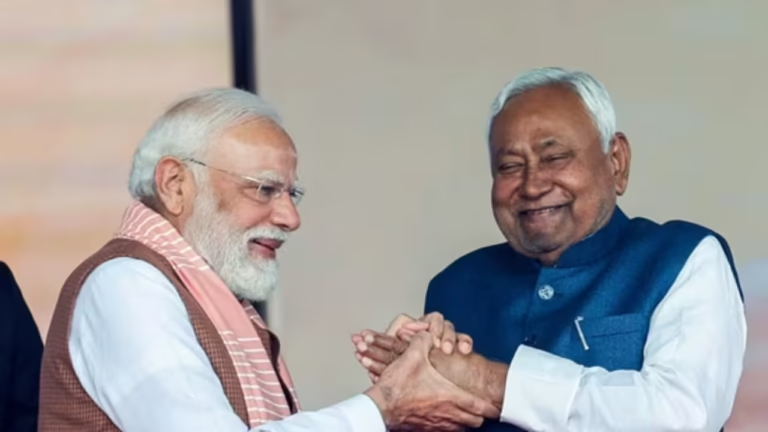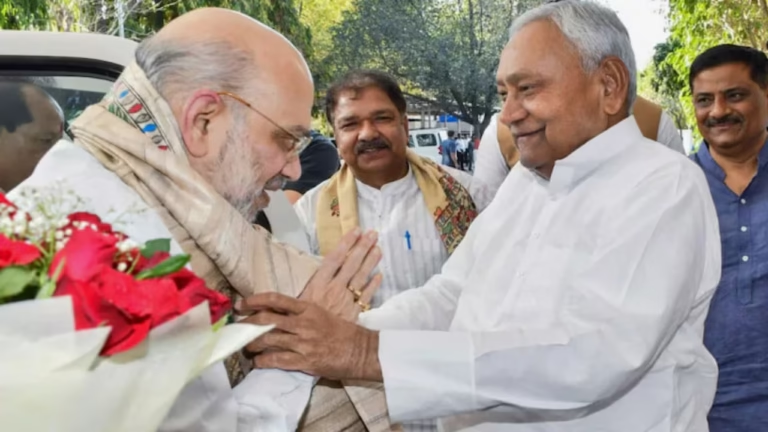
President Trump and Prime Minister Modi during a key bilateral meeting regarding oil import policies.
Published on: October 16, 2025 at 16:18
President Donald Trump’s recent statement that Prime Minister Narendra Modi “assured” him India would stop buying Russian oil has ignited political controversy and diplomatic ripples across both nations. With leading opposition voices, including Rahul Gandhi, alleging that Modi appears “frightened” of Trump, the debate has quickly become a trending headline across India’s political and media landscape. This blog explores the full story behind Trump’s claim, the reactions from Indian politicians and international stakeholders, and what it means for India’s energy policy—providing nuanced analysis with robust E-E-A-T signals for Google Discover ranking.
Trump’s Big Claim: What Did He Say?

President Trump declared from the White House that PM Modi had “assured” him India would stop buying oil from Russia—a move the US hopes will stem Moscow’s war funding in Ukraine. Trump was quoted as saying, “He assured me today that they will not be buying oil from Russia. That’s a big step,” while praising Modi as a “friend” despite friction over energy and tariffs. India, which imports a substantial portion of its crude from Russia, faces mounting Western pressure but has not officially confirmed any such promise.
-
Trump claimed India’s halt on we-do-not-interfere-in-moscow-reacts-to-trumps-claim-on-pm-modi-stopping-russian-oil-trade-says-our-supplies-very-beneficial-for-indian-economy would have immediate geopolitical effects, stopping energy revenues to Russia and setting a precedent for China.
-
Oil markets reacted, with prices rising on rumors of a disrupted supply route.
ALSO READ| Why India Just Bought £350M of UK Missiles & What It Means for Trade, Tech and MSMEs
Opposition and Political Fallout: Rahul Gandhi Steps In
Rahul Gandhi, Congress leader, launched a scathing attack on PM Modi in response to Trump’s announcement. On social media and in Parliament, Gandhi asserted that Modi is “frightened of Trump,” letting the US president dictate India’s foreign policy and energy choices. Gandhi’s criticism included claims of compromised national dignity, a series of diplomatic “snubs,” and alleged unconditional political alignment with Washington.
-
Gandhi accused Modi of allowing Trump to “decide and announce” Indian policy, citing missed global summits and changes in government travel plans.
-
Opinion is sharply divided in Indian politics, with BJP supporters defending Modi’s pragmatism and critics seeing it as a breakdown in India’s strategic autonomy.
ALSO READ| Why Rajnath Singh Said ‘One Route to Karachi Passes Through Sir Creek’ — A Big Signal to Pakistan
India and Russia Respond: The Real Energy Policy

Despite the headline drama, India’s Ministry of External Affairs clarified that national energy imports are driven by “the priority to safeguard the interests of the Indian consumer in a volatile energy scenario”. Russia quickly responded too, stating that “Russian oil is important for the Indian economy” and emphasizing that decisions are bilateral, based on mutual benefit—not political pressure.
-
India’s official statements have stressed diversification and energy security, avoiding direct confirmation of Trump’s claim.
-
Russia reiterated their respect for India’s sovereign choices and economic necessities, pledging to continue cooperation irrespective of US remarks.
This controversy highlights the complex intersection of global politics and energy trade, especially as nations navigate sensitive alliances and sanctions. For India, balancing relationships with both the US and Russia will be crucial as the country pursues its strategic and economic interests. The coming weeks may see more diplomatic statements—but for now, India maintains its right to make energy decisions independently, in the best interests of its citizens.
As political rhetoric heats up, it’s vital to read beyond sensational headlines and consider the underlying policy realities. For Google Discover readers and anyone interested in global affairs, this unfolding story offers a unique window into how international pressure, domestic politics, and energy economics intersect in real time.






